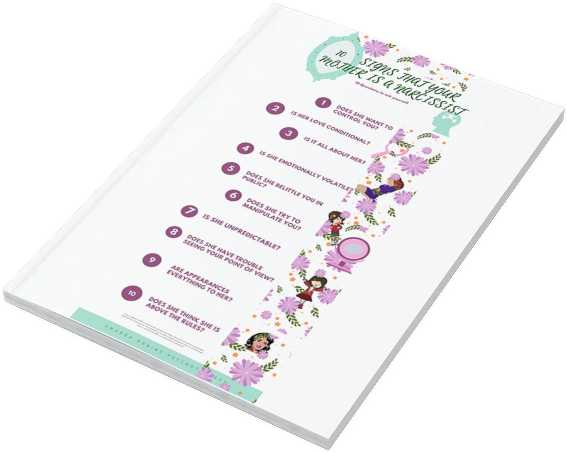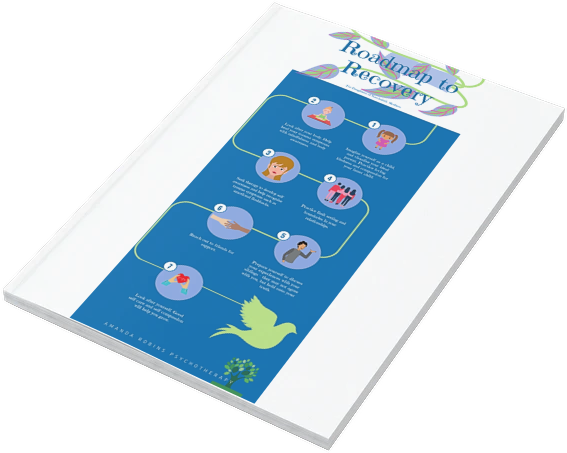It seems like such a cliche.
The dramatic, flamboyant, powerful yet somehow fragile mother who is so self-absorbed she has no time for her children. Except where she can bask in their reflected glory, or when they can serve her needs.
She’s a figure of fun, a joke to those who haven’t actually had to survive narcissistic parenting.
That’s why I can’t bear to watch The United States of Tara.
Although depicting the sharply delineated selves of a mother with Dissociative Identity Disorder (DID), this popular TV series gives us an insight into the plight of children surviving under the regime of a parent who has little emotional space for the minds and feelings of others.
Its a challenging portrait for people who have had to survive a narcissistic parent and for some, it feels too close to home.
For many of my clients, tiptoeing around the mercurial moods of a narcissistic mother was their everyday reality. Cleaning up after the whirlwind and supporting their parent’s needs whilst avoiding her anger taught them that they were unimportant. As they survive this toxic environment, children of narcissists also learn that activating their authentic self will normally result in parental rage or abandonment.
Narcissistic Mothers
Because of their problems with boundaries and identity, narcissistic parents are emotionally unavailable to their children. They just don’t have time or space for nurturing others.
Theorists Mahoney, Rickspoone and Hull describe narcissistic parents as “possessive, rejecting, inconsistent and unaffectionate.”
Sounds attractive - not!
Narcissistic mothers are usually “self-absorbed and unresponsive to their child’s needs.” These self-serving parents psychologically abandon their children and co-opt the child into emotionally supporting them.
The “hostile and rejecting parenting” of narcissists is inevitably traumatising for children.
Mahoney, Rickspoone and Hull describe the plight of children of narcissistic mothers looking “for love and attunement”, but getting “trapped in the mother’s own personal narrative. The child, with little or no possibility of self-discovery, compensates by caring for the parent under a real or imagined threat of abandonment.”
Growing up in this environment, children of narcissistic mothers “display heightened empathic skills which may actually be hypervigilance or a heightened protective stance that masquerades as empathy.” They are indoctrinated into compulsively meeting others’ needs instead of their own.
These unloved children are usually shamed for their dependency needs by the narcissistic parent. They grow up associating their authentic self (and their own needs) with shame and abandonment.
Children of narcissistic mothers “often suffer from a tremendous sense of shame and humiliation.”
Narcissistic parents project their “disowned sense of failure and humiliation” onto their children, often resulting in perfectionism and chronic shame. The child will attempt to live up to the parent’s expectations and internalise a sense of shame when they inevitably find they cannot do so.
“The traumatizing narcissistic parent envies and resents the child’s right to dependency and demands, overtly or covertly, that the child recognizes the exclusive validity of the parents’ wishes and needs.”
Children of narcissistic mothers are forced into “forgetting” their genuine needs and desires and trained into the role of serving the whims of their self-absorbed parent.
Adults who have grown up with a narcissistic mother often become “compulsive caregivers.”
“Pathological caretaking or “co-dependence” involves the child (and subsequently the adult) becoming dedicated to the prediction and attunement to the needs of parents and others, while truncating the development and expression of their own feelings and needs.
For these people an abusive relationship is far less frightening than solitude, due to the need to regulate others to avoid their inner world.”
“[Swiss psychoanalyst, Alice] Miller used the term double amnesia to describe the process by which these children have to first forget certain parts of themselves (feelings, thoughts, and fantasies) that could not be accepted or tolerated in their families. The second layer of forgetting is to forget that these feelings have been forgotten. These two layers of forgetting ensure that the child will not slip back into wanting what could not be had.”
Adults who have grown up with a narcissistic mother experience a “depleted subjective world.” These children have served their parent “exclusively as a need gratifying object.” Whilst being rewarded for serving their parent’s needs, they are at the same time punished for “any attempts to assert their own separate subjectivity.” They are forced to suppress their subjectivity to survive in this difficult environment.
No wonder they often completely lose touch with their true self.
As adults, children of narcissists often find themselves in relationships where they are used to “fulfill psychological functions for others whilst also feeling a sense of shame associated with their own needs and feelings.”
Because of the severe emotional abuse they suffered, their experiences of self are characterized by feelings of “vague falseness, shame, envy, emptiness, ugliness or inferiority, or their compensatory counterparts: self-righteousness, pride, contempt, self-sufficiency, vanity, and superiority.” The natural process of growing and nurturing an authentic identity - of becoming individuated, is distorted due to the predations of the narcissistic parent.
In order to survive this crucible, the young child must serve the parent’s needs and forget their own. As part of this process, the child often incorporates a harsh and punitive internal voice, judging them for any attempts to activate their authentic self. They will also suffer chronic shame, in some cases unconsciously shaming themselves for having needs or autonomy outside of their parent’s expectations.
Adults who have grown up in this environment often appear lost and directionless, with difficulty understanding or acting on their own values and beliefs. They may be ambitious or successful, but will often self-sabotage because they are not truly committed to their career path. Their ambitions are usually a reflection of their parent’s narcissism.
Children who have grown up with narcissistic mothers are locked in a continuing struggle for self definition and authentic agency and it can take a lot of hard work for them to “rediscover” themselves.
PSYCHOTHERAPY FOR ADULT CHILDREN OF NARCISSISTS
Adult children of narcissitic mothers often have difficulty recognising the pain they experienced as children. Acknowledging the trauma of their childhood can lead to feelings of overwhelming grief or rage. Given they spent most of their childhood denying their own needs, recontacting their authentic self takes considerable work.
Therapy needs to uncover the layers of defense and “forgetting” that have been used to repress their genuine needs and values. Allowing themselves to feel for the first time, survivors can be hit with intense grief for the childhood they never had, and for their lost selves.
Therapeutic work can provide the space for self-recognition and self-compassion.
COMPLEX TRAUMA
In most cases, those who have been raised in narcissistic families will have a history of complex trauma. Survivors will have trauma symptoms such as hypervigilance and emotional flashbacks. But those who have suffered narcissistic parenting will also have ongoing issues with identity and self-definition.
If you have grown up in a narcissistic family, the emotional abuse you suffered is a part of who you are, for better or worse.
Because it is tied to early development, trauma in childhood gets imprinted in the brain and changes the ability to respond to stress and to have healthy relationships.
Trauma counselling can help gently unpick the trauma-based responses and reactions and allow survivors to recognise the feelings that are underlying their fraught relationship with themselves.
People who have suffered under the regime of a narcisssistic parent often experience chronic shame.
Chronic shame is a debilitating condition shared by most people who have been wounded in their early attachment relationships, but for children of narcissists, it is usually much worse.
Because they are shame averse, narcissistic parents will often project their own shame onto their children and will also use shame as a parenting strategy, leaving their children with the intense and toxic emotional fallout of this debilitating emotion.
Narcissistic parents generally don’t work to “repair” the attachment relationship. They often fail to soothe their children, leaving the child to deal with stressful emotional states (including those associated with shame) on their own. Sometimes this can lead to dissociation which makes the young child vulnerable to mental illness later on.
Ongoing shame affects our sense of self and our ability to have healthy relationships, including our relationship with ourselves. Because their sense of self is so wounded, people who have grown up with narcissistic parents often see themselves as defective.
They also experience “gaps” or lacunae in their sense of self.
Their sense of self is fragmented, sometimes due to dissociation, but also due to traumatic memories and emotional flashbacks which can “hijack” survivors and transport them away from the present moment and back into their traumatic childhoods.
HOW CAN TRAUMA COUNSELLING HELP SURVIVORS OF NARCISSISTIC PARENTING?
The aim of therapy for survivors of narcissistic parenting is to integrate the fragmented self.
Because shame is a chronic part of survivors self-experience it can cause them to lose contact with the different parts of themselves. Counselling can help ameliorate some of the effects of shame and help survivors gain awareness of their responses. Therapy can also allow survivors of complex trauma to increase their self-awareness and re-activate the authentic self that has been buried in response to toxic parenting.
The non-judgemental and empathetic relationship you develop with your therapist is part of what will help heal you.
As you develop trust through therapy, you will be able to safely re-experience the repressed and vulnerable parts of yourself that have been forgotten due to childhood trauma. Through empathy and understanding, an experienced trauma therapist will help you develop compassion for these unacknowledged and traumatised parts of you.
As you gain more self-compassion and awareness, you will find that your feelings of shame will diminish. As you get to know yourself better, you will become more grounded, less hypervigilant and more available to yourself and to the important people in your life.
An experienced and empathetic therapist will help you come to terms with the legacy of narcissitic parenting and help you find the best pathway forward.
Start your healing journey with a free phone consultation:
Is Your Mother a Narcissist?
Download my free ebook plus checklist and bonus recovery roadmap to find out.
Reference: Donna M. Mahoney, Lucy Rickspoone and Jennifer C. Hull Narcissism, Parenting, Complex Trauma: The Emotional Consequences Created for Children by Narcissistic Parents The Practitioner Scholar: Journal of Counseling and Professional Psychology 45 Volume 5, 2016























